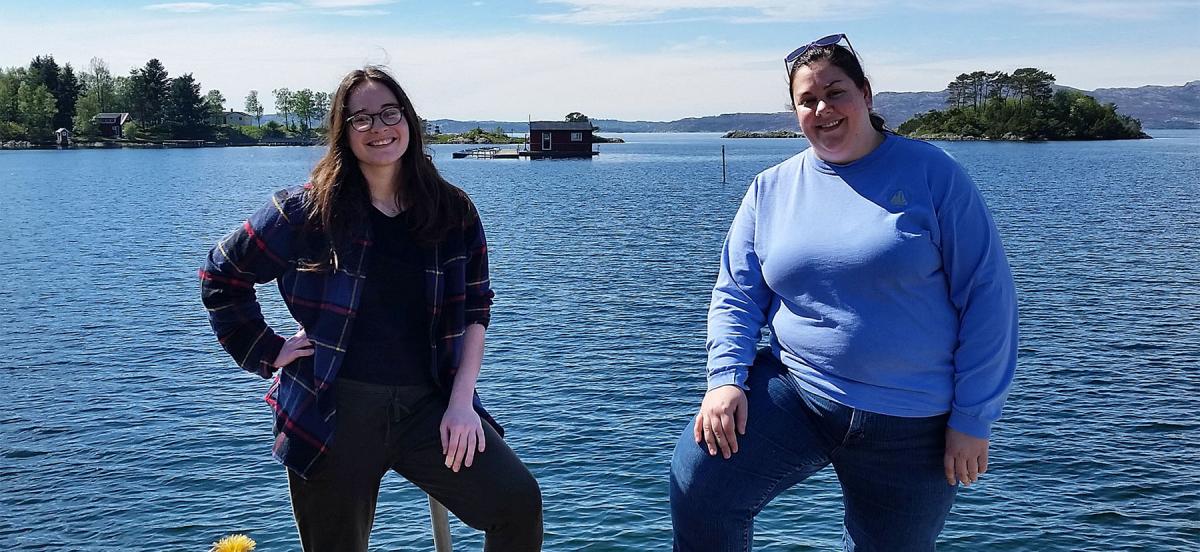Kristen Whalen Earns NSF Award

Anna Schrecengost '18 (left) and Assistant Professor of Biology Kristen Whalen in Norway.
Details
The assistant professor of biology was awarded $356,028 as part of a larger collaborative grant to fund her work exploring why certain "infochemicals" in the ocean cause phytoplankton death.
Kristen Whalen has long been interested in the battlefield of the microbial ocean. In her research, the assistant professor of biology uses integrative techniques from molecular biology, analytical chemistry, biochemistry, and cell biology to understand how cells adapt to the chemistry that surrounds them. And, in the case of the ocean, that means studying the bacterial chemical compounds responsible for the death of phytoplankton, the crucial single-cell marine plants that form the base of the ocean's food chain, drive the transport of nutrients across the seas, and provide nearly half of the oxygen that humans breathe.
This summer Whalen is in Norway conducting field work with her student Anna Schrecengost '18 at the Norwegian National Mesocosm Centre at the Espegrend Marine Biological Station to understand how a bacterial molecule, or "infochemical," she identified—known as HHQ—influences the dynamics of natural communities of bacteria and phytoplankton. HHQ is well known in the medical field where it is associated with a bacteria that can cause lung infections, but it had not been seen before in the ocean. The team will conduct laboratory experiments to determine the environmental factors driving HHQ production in marine bacteria; establish a mechanism of how the chemical kills phytoplankton; and use field-based experiments in Norway to understand how HHQ influences phytoplankton health. This work is being funded by her recent National Science Foundation award.
Whalen received $356,028 from the NSF to fund her project "Collaborative Research: Building a framework for the role of bacterial-derived chemical signals in mediating phytoplankton population dynamics." That grant includes funds for her and Schrecengost's Norway research trip as well as for a two-year research-intensive experience for undergraduate students from Haverford, University of Georgia, and the University of Rhode Island to participate in research and field-based exercises at the Skidaway Institute of Oceanography in Georgia.
"Students will be engaged in topics ranging from microbial ecology, chemical ecology, ecological physiology, molecular ecology, and biological oceanography in small teams," says Whalen of the Skidaway experience. "At the end of the four weeks, students will return to their home institutions and use the knowledge and skills gained to work throughout the year on projects related to this grant. Monthly web-based conferences between institutions will allow students to share data, synthesize results, and facilitate the communication of science to their peers."
Here, on campus, her NSF award will fund two years of a full-time postdoctoral investigator in her lab to conduct experiments relating to understanding phytoplankton cellular stress response to the presence of HHQ. Current Haverford students will also be involved in all steps of the research. Russel Nicholson '18 has already been working with Whalen on this phytoplankton research, certain aspects of which will be the focus of his upcoming thesis.
"This grant clearly establishes the power of interdisciplinary science to move seemingly disparate fields forward," says Whalen. "I am excited to make new discoveries with students and provide them the opportunities to forge ahead into new scientific frontiers."
-Rebecca Raber



